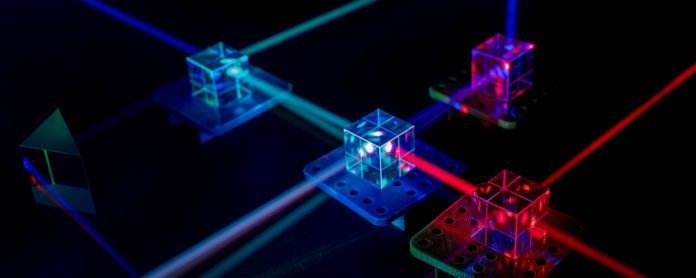A four-year project intended to boost Europe’s quantum research has secured €3.2 million from Horizon Europe.
EQUSPACE (Enabling New Quantum Frontiers with Spin Acoustics in Silicon), which aims to establish a complete silicon-based quantum information system, received its money via the Innovation Council’s Pathfinder Open funding programme, part of the Horizon scheme.
It was one of 45 recipients out of an initial 1,110 funding applications to the programme, which invests in multidisciplinary consortia for early-stage projects that have the potential to create new markets and address global changes.
The importance of global quantum research
Quantum research is important because it can lead to new technologies that improve our lives and the environment.
It has led to the development of several modern devices, including:
- Lasers
- Light-emitting diodes
- Transistors
- Medical imaging
- Electron microscopes
- Ultra-precise clocks
- Brain imagers
Quantum research also helps solve complex problems, such as removing pollution from the air, developing new battery technologies and handling large amounts of data.
A consortium of experts
Led by Finland’s University of Jyväskylä, the consortium includes Finnish startup SemiQon Oy and three other institutes: VTT Technical Research Centre of Finland, Helmholtz-Zentrum Dresden-Rossendorf e.V. in Germany, and NWO Institute AMOLF in the Netherlands.
Mikko Mönkkönen, Dean of Jyväskylä’s Faculty of Mathematics and Science, commented: “Awarding the coordination responsibilities of international quantum research projects to the University of Jyväskylä shows the high level of our research.
“This funding will significantly strengthen the already strong field of quantum research at our university.”
Harnessing Europe’s quantum potential
Consortium coordinator professor Juha Muhonen said the project will develop a platform that utilises quantum bits based on impurity atoms implanted in silicon – developing scalable methods for reading ‘silicon qubits’ by employing commercial quantum dots and connecting them via nanomechanical resonators.
“The long-term goal is to enable the use of the qubits in quantum computing and quantum sensing while creating a Europe-wide ecosystem for the quantum technology platform,” Muhonen explained.
Commercialising silicon spin qubits
Although silicon is used in traditional information processing, it is not the primary material in quantum information processing.
While silicon spin qubits have already been shown to have excellent single-qubit properties, the researchers said there are no convenient coupling and readout mechanisms for scaling up to a practical level.
Muhonen added: “The EQUSPACE project provides an interdisciplinary approach to the immediate challenge by bringing together a unique team of leading experts from the fields of spin qubits, optomechanics, and atom-scale modification of silicon.
“Nowadays, this platform is primarily being developed in Canada and Australia. Also, China and the US are generally ahead in quantum technologies.
“Projects like EQUSPACE are critical for Europe to keep pace in today’s global quantum race,” Muhonen concluded.









